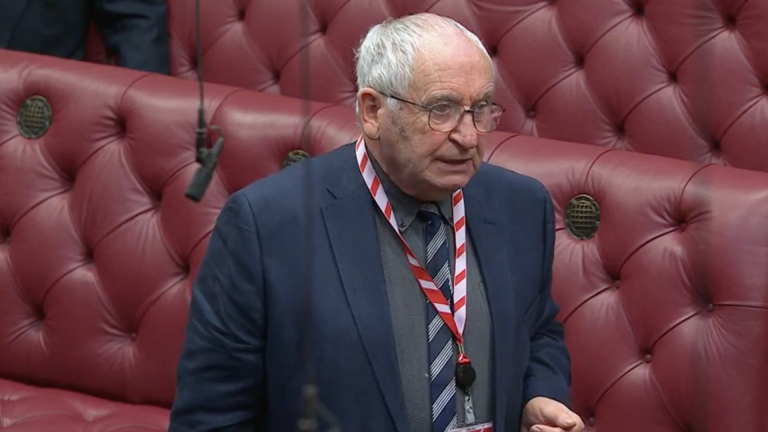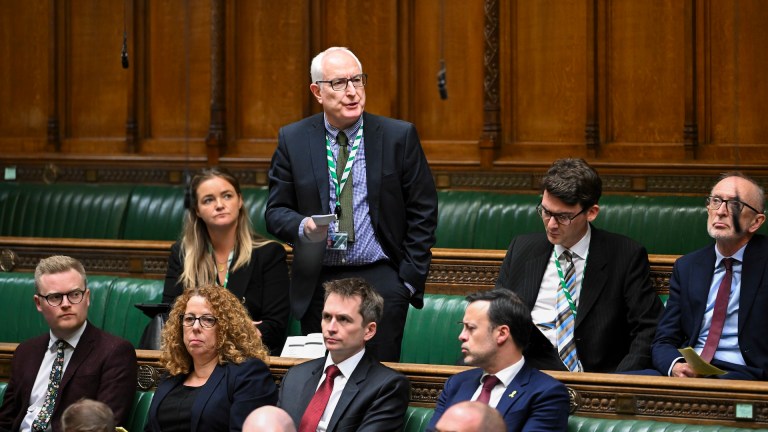This spring Labour outlined its intention to scrap the WCA and replace it with the assessment for the daily living element of PIP, so that eligibility for all working-age disability benefits would be decided by one assessment.
But while the WCA has long been linked to the deaths of hundreds of disabled people after rejecting their benefit applications, in recent years the PIP assessment has led to a higher proportion of applications being rejected than the WCA.
In addition, as the PIP daily living assessment is based on different criteria to the WCA, many of those who meet the requirements of the latter do not meet the criteria for the former.
“Getting rid of the work capability assessment could be a positive step if done correctly,” Bell Ribeiro-Addy, Labour MP for Clapham and Brixton Hill, told Big Issue.
“However, replacing it with another degrading and demoralising assessment suggests this is more about short-term savings than long-term support. The government must remember how its last attempt to balance the books on the backs of disabled people went.”
Figures revealed this summer show that nearly 584,000 people currently receiving ESA or the UC health element had their application rejected for the PIP daily living payment.
Advertising helps fund Big Issue’s mission to end poverty
However, the Timms Review of the PIP assessment, led by welfare minister Sir Stephen Timms, could alter the PIP assessment criteria, creating uncertainty about how many people might lose out under the switch and which disabilities and illnesses would be most exposed. Little data is available about the disabilities of ESA and UC health claimants.
The government is expected to publish a white paper this autumn detailing its plans to replace the WCA, with a parliamentary vote to follow. The Timms Review is expected to conclude by autumn 2026, meaning MPs are likely to vote on replacing the WCA without knowing what assessment criteria its replacement will use.
Neil Duncan-Jordan, the Poole MP who was suspended from the Labour parliamentary whip for his role in this summer’s welfare rebellion, said further reforms should be delayed until the Timms Review has been completed.
“There are worrying noises coming out of government regarding further cuts to welfare, and this may be one of those being considered,” he said. “The Timms Review really should be looking at all the disability benefits and how they interact with each other, but the emphasis should be on having a welfare system that works for people, and not seen as a way of making cuts. The Timms Review should do its job before any changes are considered.”
The government’s welfare green paper published this spring outlined its intentions in replacing the WCA, saying it would “end the state categorising people into binary groups and labelling them as either “can or can’t work’”. Instead the single PIP assessment would be “based on the impact of disability on daily living, not on capacity to work”, which would “de-couple access to the health element in UC” from work status.
In a footnote the green paper added: “In taking forward this reform, we will consider how to best support those with work-limiting health conditions who may not be entitled to PIP and the appropriate rules for those in specific circumstances, such as end of life, pregnancy or cancer.”
Advertising helps fund Big Issue’s mission to end poverty
“Disabled people should only need to attend one assessment to ascertain the level of social security they receive,” said Rachael Maskell, a leader of the rebellion against the proposed PIP cuts who, like Duncan-Jordan, subsequently had the Labour whip suspended.
“However, abolishing the WCA without ensuring that the assessment for PIP has a wider and more inclusive assessment process for the health element of universal credit, this could result in people receiving no support. This will particularly impact, for example, someone recovering from cancer or a serious accident. As a result, we can expect disabled people to face greater poverty.
“I therefore hope that the Timms Review will also address this oversight and ensure that disabled people are able to receive the financial security they need to live their lives in dignity and with appropriate support.”
“The government’s plan to scrap the WCA acknowledges the concerns of many disability rights campaigners at the unfairness of WCA outcomes,” added Middlesbrough and Thornaby East MP Andy McDonald. “But without guaranteeing fairness, linking access to ESA and UC health payments solely to the PIP daily living assessment risks leaving hundreds of thousands of disabled people without the support they rely on to live.
“Any reform to the PIP assessment process must distinguish between different types of need, award the right combination of support and ensure that those who cannot work, or who need additional support to do so, do not see their incomes reduced. The social security system should protect people, not push them further into poverty.
“I strongly support the call for broad and balanced representation in the Timms Review, ensuring that disabled people from all backgrounds and those with lived experience of the benefits system help shape its direction. It is equally vital that parliament exercises meaningful scrutiny, including a debate and vote on a substantive motion, so that the review’s outcomes are accountable, transparent, and genuinely reflect the needs of those it is meant to support.”
Advertising helps fund Big Issue’s mission to end poverty
Kim Johnson, Labour MP for Liverpool Riverside, signalled her opposition to any new welfare cuts: “Having failed to push through £5 billion in cuts through the welfare bill this summer faced with furious opposition from across the country and amongst Labour MPs, the government is now trying to introduce further cuts through the back door.
“The Labour leadership is doubling down on its austerity agenda, balancing their books on the backs of the poorest. I and my colleagues did not come into Parliament to pick the pockets of the most vulnerable in our communities. Disabled people deserve to live in dignity, and the entire economy would benefit from further investment in access to work support.
“When I worked in adult social care, I saw first-hand how essential these services were to supporting sick and disabled people and alleviating pressure on their carers. Cutting vital support – support that enables many to work – is a false economy and it risks plunging hundreds of thousands into deep poverty.
“We are the sixth richest country in the world, this Labour government must tax wealth and use it to support those who can back into work, and to create a fair and compassionate welfare system for those who need it. We defeated the last round of cuts in the welfare bill, this Labour leadership needs to know we will do it again if needs be.”
A DWP spokesperson said: “We’re committed to removing the work capability assessment and reforming the system that tells people they either can or can’t work.
“Our reforms will shift our focus from welfare to work, skills, and opportunities – backed by £1bn a year for employment support by the end of the decade – while ensuring there is always a safety net for the most vulnerable.
Advertising helps fund Big Issue’s mission to end poverty
“We’ve also announced a ministerial review of the PIP assessment process – which puts disabled people at its heart – to make sure it is fit and fair for the future.”
Do you have a story to tell or opinions to share about this? Get in touch and tell us more.
Reader-funded since 1991 – Big Issue brings you trustworthy journalism that drives real change.
Every day, our journalists dig deeper, speaking up for those society overlooks.
Could you help us keep doing this vital work? Support our journalism from £5 a month.





